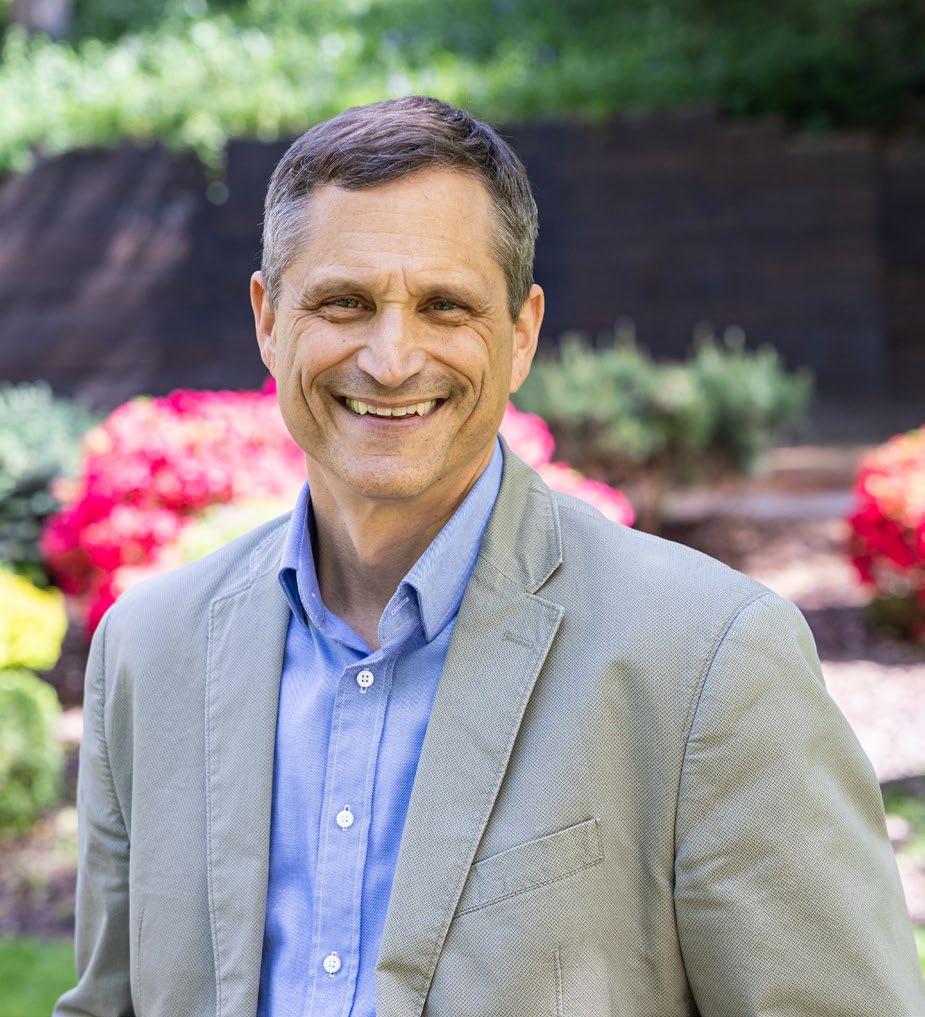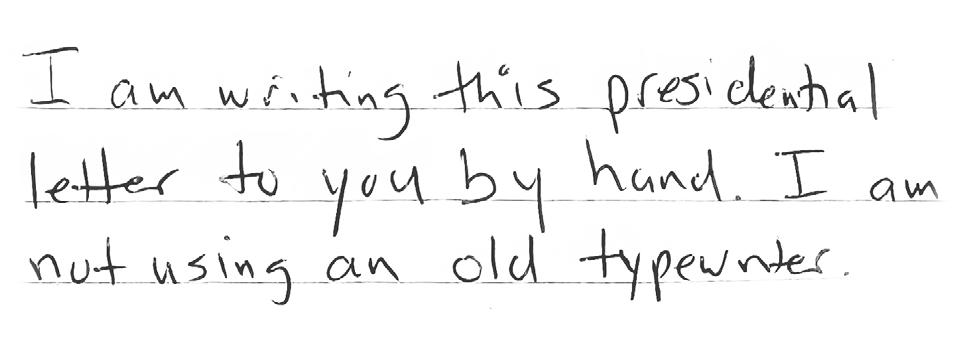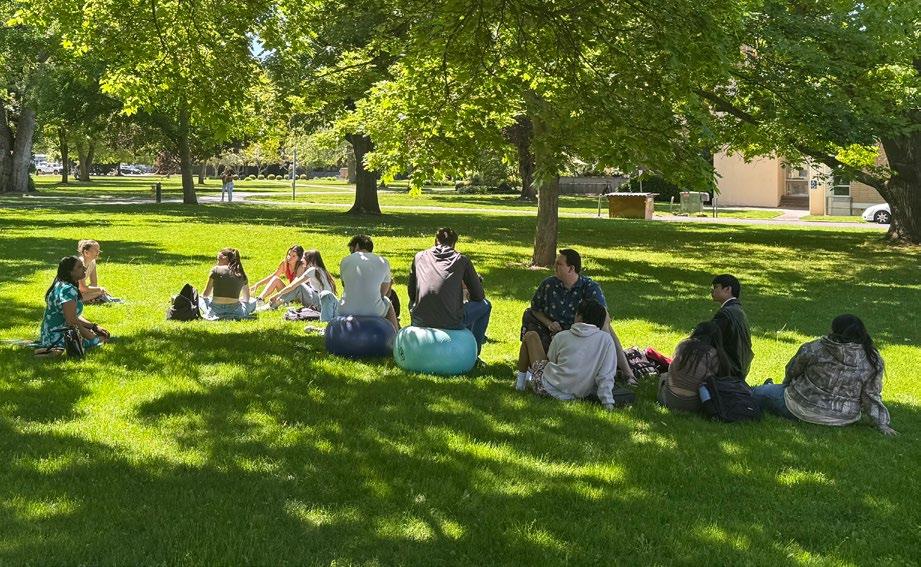
4 minute read
From The President

I am not using my laptop computer, which sits just a foot away, tempting me, mocking me. And I have not asked ChatGPT, or any other AI engine, to write a “warm, engaging, hopeful letter from a college president to a constituent audience in 600 words” in hopes of a finished product in 30 seconds of work. No, I am writing these words with a pen on lined paper—like the “good old days.”
Now, I should be clear: there is much good that comes from technological advances. There was a good use for typewriters, and there continues to be huge advantages to laptop computers, driving efficiency and creativity. And while AI will bring new challenges and dangers to our world, the tool itself, if managed properly, might be a great blessing. Walla Walla University, with a long tradition as a leader in math, science, technology, engineering, and innovation, must bring moral and practical intelligence to this new intelligent capability.
But entering this strange, scary, and wonderful new world will require application of everlasting values, cold commitments, and indispensable ways, long cherished by humans, Christians, followers of Jesus Christ. I have included a photograph I took this spring, which well illustrates those transcendent standards. You will see Dr. Amanda Ramoutar, a professor in our education and psychology school. She is teaching a class under a WWU tree, sitting on a beautiful WWU lawn, utilizing one of the great, natural WWU classrooms. There are four powerful actions apparent here.

First, you see a teacher who sees her students as people. These men and women are not machines, but human beings. They are made in the image of God, and desire relationships. WWU is a community of faith—and this means we follow the way of the faithful one, Jesus, who engaged his students in personal relationship. WWU is distinctive in our prioritization of relationships.
Second, you see an instructor who understands the power of the natural world. Humans learn in “God’s second book,” as Ellen White calls it. And surely the greatest volume in this library is the great Pacific Northwest. Rivers and lakes, mountains and valleys, coastlines and the geometric Palouse—WWU’s campus has it all. (This is our father’s world).
Third, this photograph illustrates a professor applying creative skills. This is a school of innovation, curiosity, critical thinking, and ample imagination. The creative way of a Creator God nourishes and defines the academic program here. Are we strong in terms of content, technical knowhow, professional standards? Yes. But the genius at WWU is in the mind—emotional and social intelligence, openness to what God has to teach us, dreams and visions, walking not by sight but by faith, asking questions, seeing a parting sea before the miracle takes place.
Fourth and finally, I see in this picture a rabbi (teacher) in service of the great Rabbi, Jesus Christ. Human relationship, the natural world, a creative spirit—these find ultimate meaning in God. “If God is for us, who can be against us?” This hopeful question should give us peace and confidence—even in this unsettled world. The planet may be in crisis, higher-education may well be under stress, the church may face great challenges—but “if God is for us” we are not only going to be okay, but we will find abundance. WWU’s future is bright not because we will remain on the cutting-edge of human learning, but because we will remain steadfast in trusting the way, truth, and the life of the great God and humanitarian, Jesus Christ. In Him we trust.











